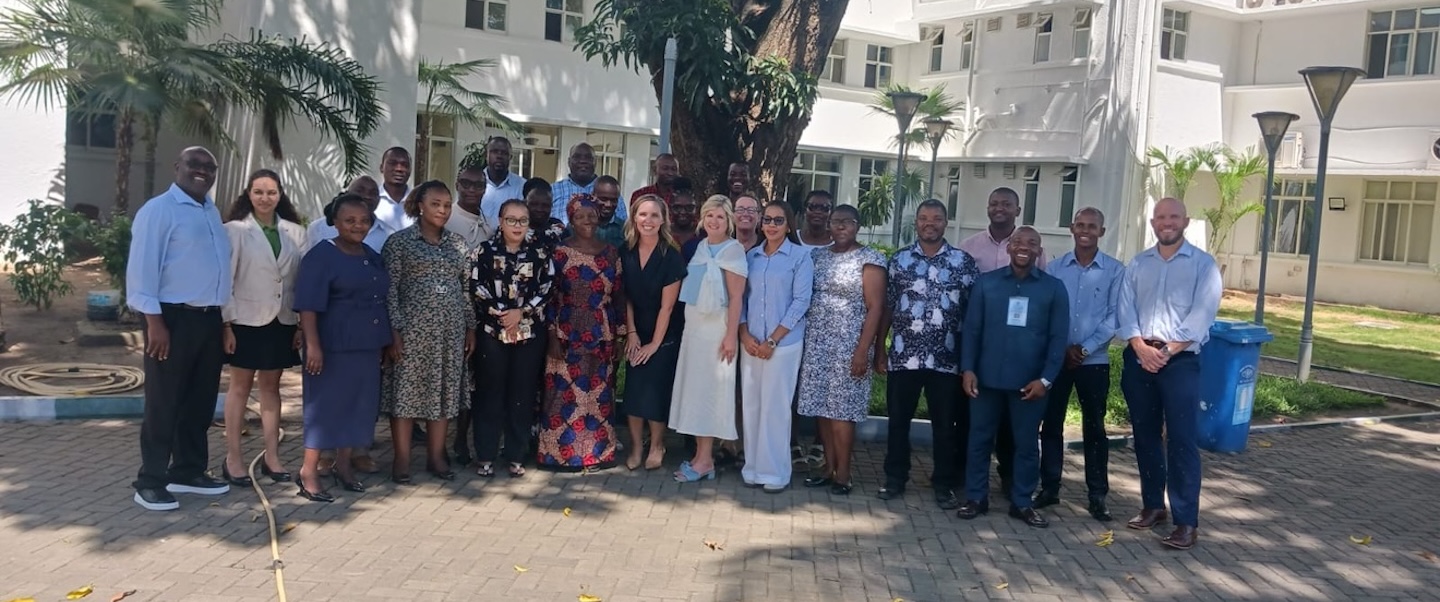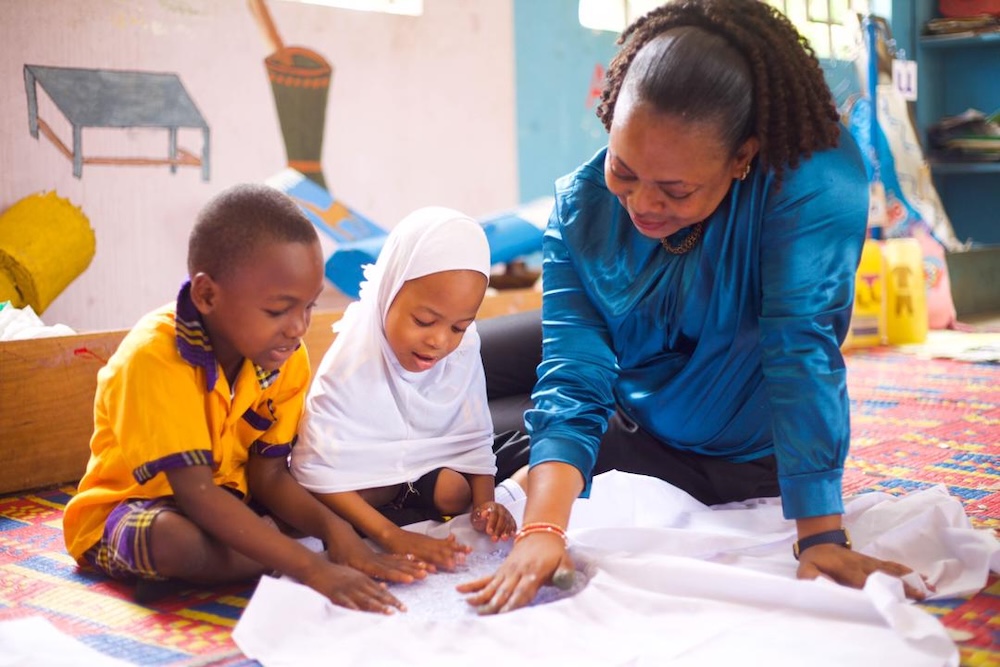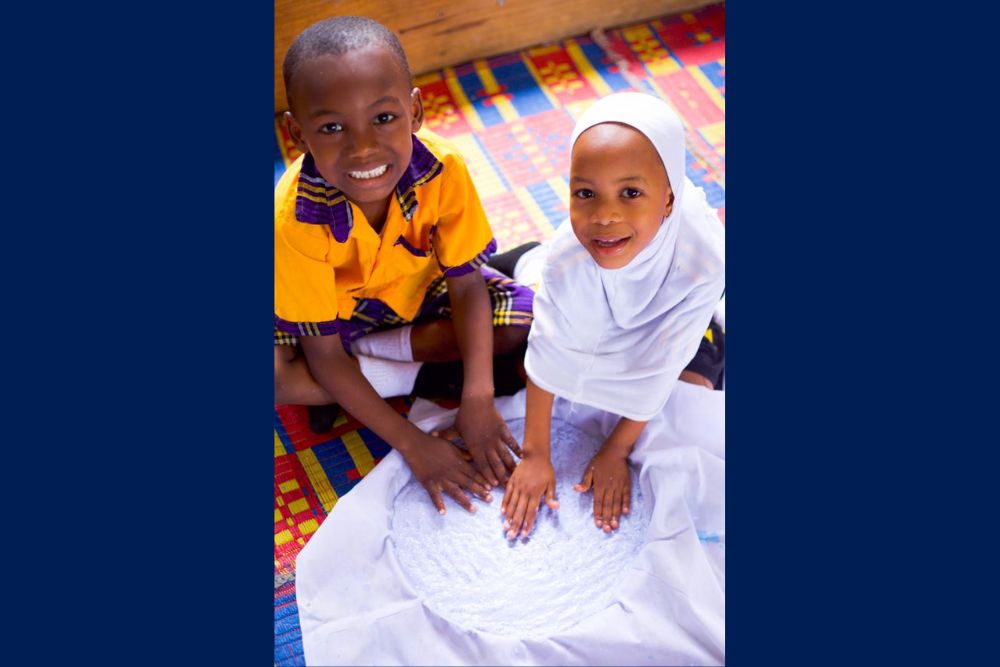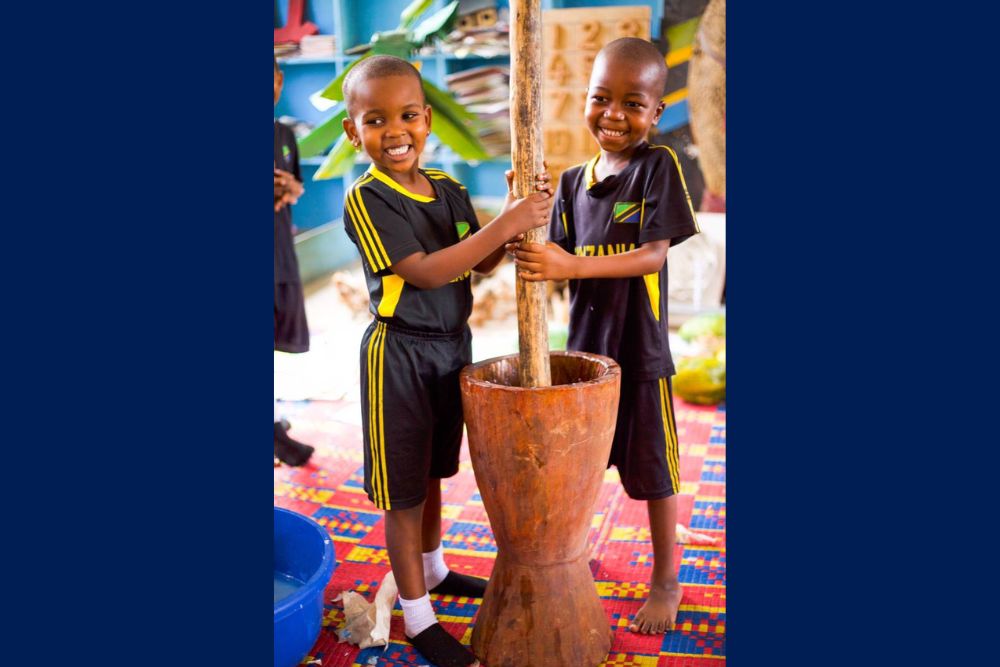Project brings together faculty, students to advance climate resilience in education
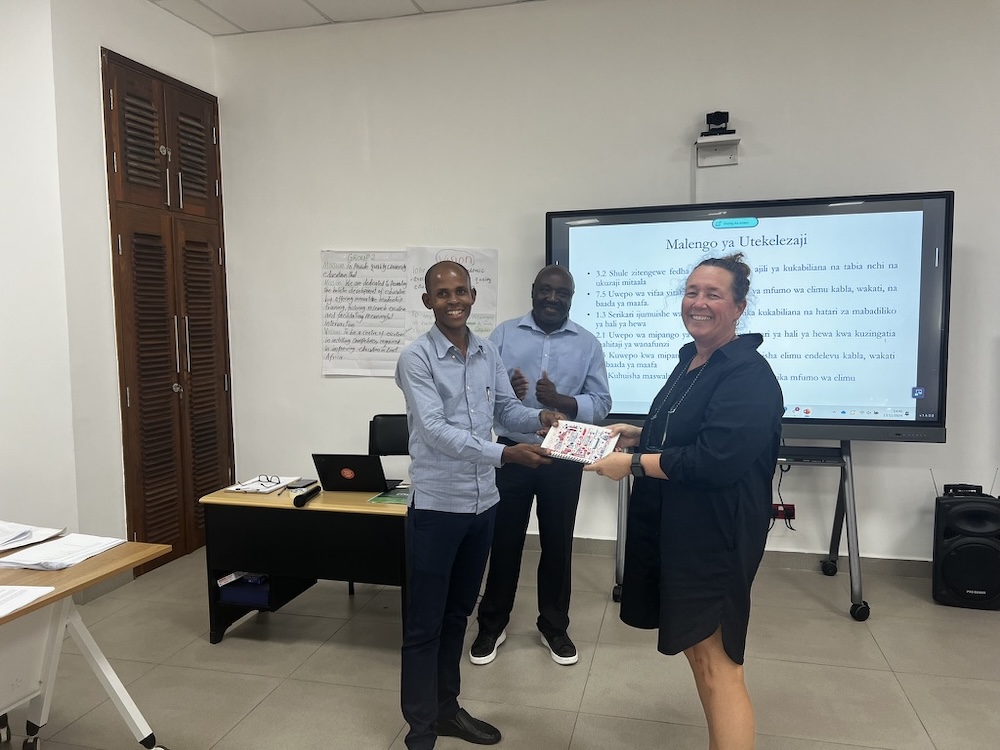 A Belmont University team recently returned from Tanzania where they advanced key components of CO-CREATE –– Collaborative Opportunities for Climate Resilience, Empowerment and Transformation through Education. The week-long visit marked significant progress in the $2 million project, which aims to develop evidence-based models for climate action and education.
A Belmont University team recently returned from Tanzania where they advanced key components of CO-CREATE –– Collaborative Opportunities for Climate Resilience, Empowerment and Transformation through Education. The week-long visit marked significant progress in the $2 million project, which aims to develop evidence-based models for climate action and education.
The project is led by the Aga Khan Foundation with Belmont University, Creative Action Institute and Restless Development. The Belmont team — including Drs. Shelby Garner, Ben Ryan and Rachael Flynn — conducted a United Nations-supported workshop using a disaster risk reduction scorecard to evaluate and strengthen Tanzania's education system resilience.
“The scorecard approach has given us substantial evidence on climate education and community involvement,” Garner said.
The assessment brought together diverse stakeholders from across Tanzania, including teachers, civil society organization leaders, government officials and emergency response personnel. Conducted entirely in Swahili through partnership with Aga Khan University, the workshop produced valuable recommendations for enhancing the education system's climate resilience.
“Our changing climate is rarely discussed in terms of how it impacts student learning,” said Nikki Bates, a Ph.D. education student who is conducting qualitative analysis for the project. “This project provides a voice for students and educators that lose access to their schools for extended periods of time due to flooding and other major climate events in Tanzania.”
Bates notes that similar challenges exist closer to home.
“Recently, Eastern Tennessee and Western North Carolina have seen similar catastrophic weather events that undoubtedly impacted the children and schools in these areas. This research is invaluable to education systems globally.”
The team witnessed firsthand how their initiative is transforming classrooms across Tanzania. Teachers are implementing innovative climate solutions, including developing micro-forests for natural cooling and creating eco-coolers from recycled materials. These practical applications demonstrate how climate education extends beyond theory into tangible community benefits.
Statistical analysis led by Dr. David Phillippi from Inman College of Nursing has shown significant improvements in teachers' climate education knowledge. This success aligns with CO-CREATE's goal of improving holistic learning outcomes for disadvantaged girls and boys in Tanzania.
The project has created meaningful research opportunities across multiple academic levels at Belmont. Undergraduate students Kaitlyn Ekman and Olivia Moyer served as global research fellows, contributing to the data collection process under the supervision of graduate assistant Kristian Dambrino.
“The experience of getting to work in collaboration with Dr. Garner and the entire team on this grant has been beyond rewarding,” Dambrino said. “As supervisor for the undergraduate global research fellows, I was so impressed with how Kaitlyn and Olivia took initiative in not only the data collection process, but in active learning. Both embraced humility in collaborating with Dr. Garner, and they were responsive in scheduling meetings and completing the data collection amid their respective highly demanding academic schedules.”
Diana Honey, a Fulbright Scholar currently teaching English in Taiwan, has also brought valuable cross-cultural expertise to the research team.
“Through the USAID Tanzania project, I was able to see firsthand how my passion for education and my interest in cross-cultural collaboration can intersect,” Honey said. “This project has helped me understand how my unique passions and experience can be utilized to make a difference worldwide.”
Looking toward 2025, the project team will focus on:
- Supporting teachers in implementing their climate education training
- Assessing long-term knowledge retention from the workshops
- Facilitating teacher presentations at a global forum in Kenya this June
- Publishing research findings to enable replication of successful initiatives globally
The collaboration has yielded additional benefits for Belmont, including a developing partnership with Aga Khan University that could expand into study abroad opportunities and faculty exchanges in both education and health care fields.
“We've seen remarkable engagement from both teachers and students in creating climate-friendly solutions,” Garner noted. “These educators are showing students how these solutions could be used in future careers, emphasizing that teaching itself is the ultimate 'green job' because it involves educating the next generation about environmental stewardship.”
The team plans to seek additional funding to implement recommendations from the scorecard assessment, further strengthening Tanzania's climate-resilient education initiatives and advancing CO-CREATE's mission of transforming education through climate action.
Collaborative Opportunities for Climate Resilience, Empowerment, and Transformation through Education (CO-CREATE) is a global initiative from the American people through USAID and UK International Development from the UK Government.
Learn More
Belmont’s Global Health Initiative

